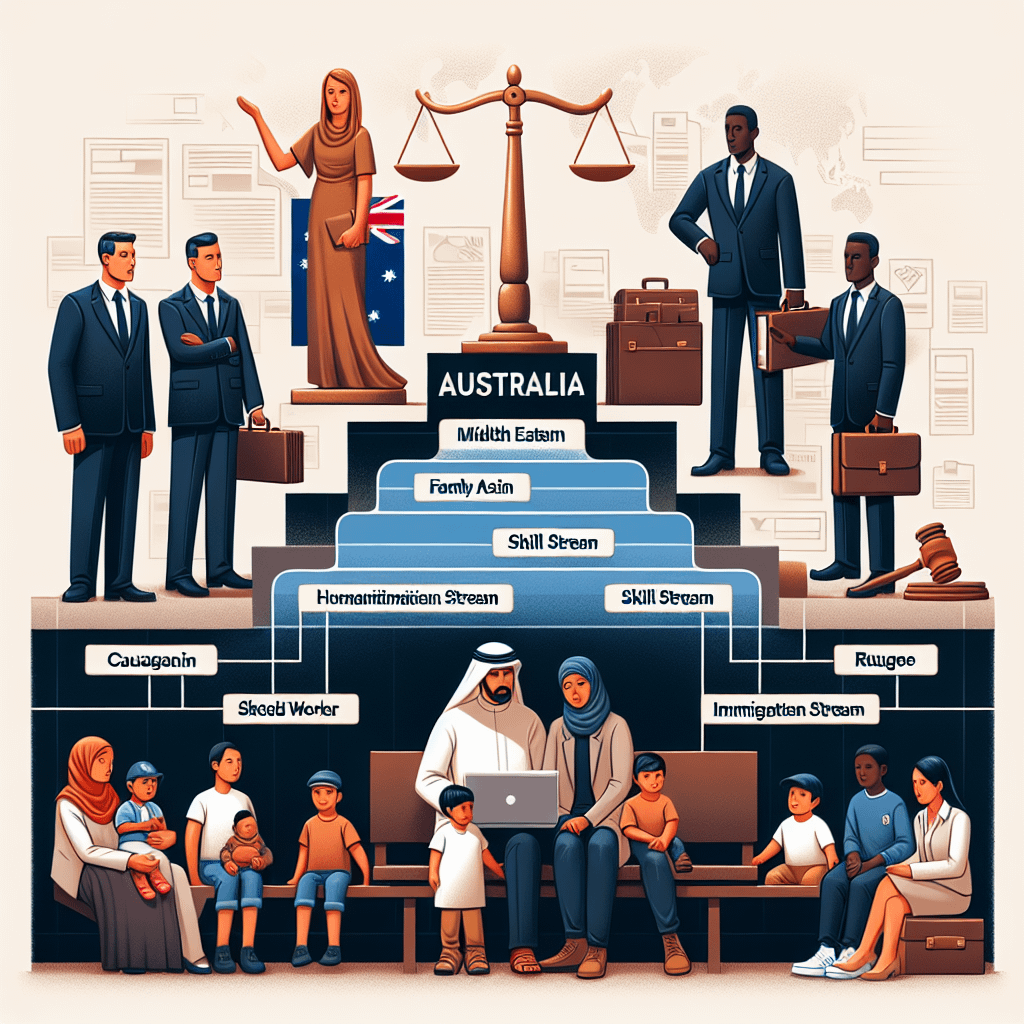Australia is a popular destination for immigrants around the world, celebrated for its diverse culture, stunning landscapes, and robust economy. If you’re considering making a move to Australia, it’s important to understand the various categories of immigration available. Each category is designed for different purposes and requires different criteria to be met. Here’s a friendly walk-through of the main categories to help you get a clearer picture.
1. Skilled Migration:
This is perhaps the most well-known and frequently used category for people looking to settle in Australia. Skilled migration is targeted at individuals who possess the skills and qualifications that are in demand in Australia. There are several subclasses in this category, including:
- Skilled Independent Visa (Subclass 189): This is a permanent resident visa for skilled workers who do not need sponsorship from an employer, a state, or a family member.
- Skilled Nominated Visa (Subclass 190): This visa requires nomination by a state or territory government, offering permanent residency to skilled workers.
- Skilled Work Regional (Provisional) Visa (Subclass 491): This is a temporary visa for skilled workers who want to live and work in regional areas of Australia and need to be sponsored by a state, territory, or eligible family member.
2. Employer-Sponsored Migration:
For those who have a job offer from an Australian employer, an employer-sponsored visa might be the way to go. This category allows Australian employers to address skills shortages by sponsoring foreign workers. Key examples include:
- Temporary Skill Shortage (TSS) Visa (Subclass 482): This is a temporary visa that allows skilled workers to work in Australia for an approved business for up to four years.
- Employer Nomination Scheme (ENS) Visa (Subclass 186): This offers permanent residency and is available to workers nominated by an Australian employer.
3. Family Migration:
These visas are designed to reunite families by allowing Australian citizens and permanent residents to sponsor family members who want to live in Australia. Common visas in this category include:
- Partner Visas (Subclasses 820 and 801 for onshore; 309 and 100 for offshore): These are for people in a genuine and ongoing relationship with an Australian partner.
- Parent Visas (Subclass 103 and 804): These visas allow parents to live in Australia if their child is an Australian citizen, permanent resident, or eligible New Zealand citizen.
- Child Visas (Subclass 101 and 802): These are for children of Australian citizens or permanent residents, allowing them to live in Australia.
4. Humanitarian and Refugee Visas:
Australia offers protection to individuals who face persecution, torture, or serious harm in their home countries. This category is designed to offer refuge to those in distress.
- Refugee Visas: These are for those outside their home country, unable to return due to fear of persecution.
- Humanitarian Visas: Available for individuals who face discrimination amounting to gross violations of their human rights.
Practical Tips:
- Research Thoroughly: Each visa has specific requirements and it’s crucial to understand these before applying. Make sure you meet all the criteria and have the necessary documentation.
- Consult with a Professional: Consider reaching out to a migration agent or lawyer to guide you through the process. They can offer personalized advice and help navigate the complex application procedures.
- Check Occupation Lists: If you’re applying under skilled migration, check if your occupation is on the relevant skilled occupation list. This is essential for determining eligibility.
Navigating the world of Australian immigration can seem daunting, but understanding the categories and options available can make the journey much smoother. By aligning your circumstances and aspirations with the correct visa category, you can take clearer steps towards a life in Australia. Best of luck as you explore the possibilities Down Under!








